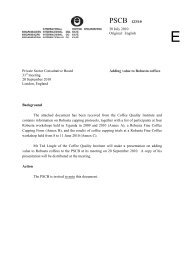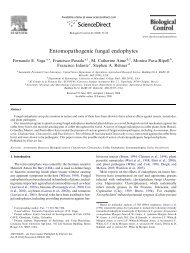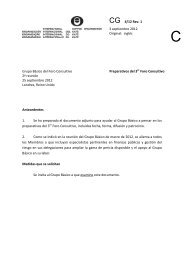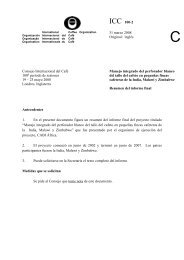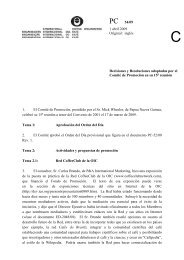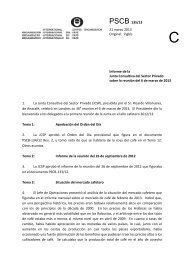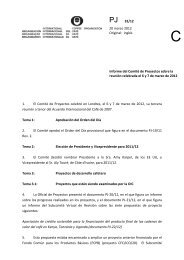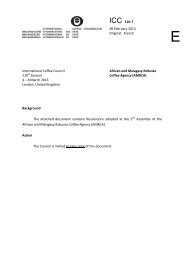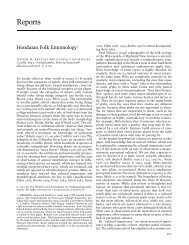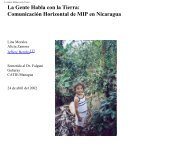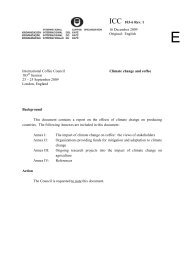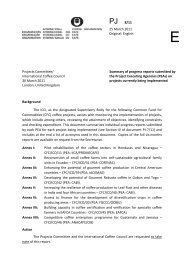Devouring profit - International Coffee Organization
Devouring profit - International Coffee Organization
Devouring profit - International Coffee Organization
Create successful ePaper yourself
Turn your PDF publications into a flip-book with our unique Google optimized e-Paper software.
74<br />
face of world coffee and to formulate coherent integrated procedures to develop and<br />
maintain a viable coffee sector. All too often coffee institutes seem to react to change<br />
rather than to instigate it. This is in no small part due to the decline in the power of<br />
these institutes as post-pact policies have taken effect.<br />
We suggest that coffee institutes will increasingly be expected to help farmers comply<br />
with standards such as:<br />
IPM for pest control<br />
HACCP (Hazard Analysis and Critical Control Point) for ochratoxin management<br />
Compliance with ISO standards<br />
Organic compliance (Soil Association, Biodynamic)<br />
Shade coffee certification<br />
Starbucks Preferred Supplier Program verification<br />
We believe that institutes as they are presently constituted and funded, will not be<br />
able to achieve competence in all these fields and that they will have to concentrate<br />
on a few of the most important aspects that confer the most benefit on the greatest<br />
number of farmers. Foremost amongst these aspects will be the production of quality<br />
coffee which, independent of any scheme, will tend to find a better price.<br />
In order to improve this state of affairs, the first requirement should be a systematic<br />
review of the whole coffee production process to determine critical points that affect<br />
economic viability for farmers. From our interactions with institutes, we have seen<br />
little evidence of a commitment to such a rigorous procedure.<br />
Research: in most countries IPM research lacks a clear strategy, neither guided by a<br />
clear understanding of farmers’ needs nor underpinned by a rigorous economic analysis<br />
of the sector’s requirements. Too many researchers follow a special interest to the<br />
exclusion of all other factors and though many have a sincere desire to promote sustainable<br />
coffee growing, all too often they fail to make significant advances. In their<br />
endeavours, poor infrastructure and lack of funds hamper their work.<br />
Whereas many of their economic problems are beyond their immediate control, researchers<br />
need to develop a more open and participatory approach to understanding<br />
the realities of modern rural life. They need to devote at least a part of their resources<br />
to short-term and pragmatic research aimed at solving small and solvable problems<br />
that can demonstrably show an improvement in the plight of the rural poor.<br />
Extension services: to be effective, IPM strategies need a set of robust techniques,<br />
knowledge and measurements. Through all this process, extensionists should participate<br />
actively in teaching the coffee farmers about how to manage the pest.



